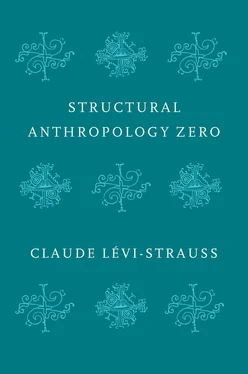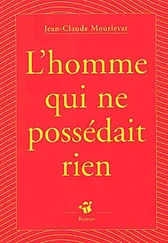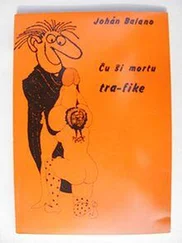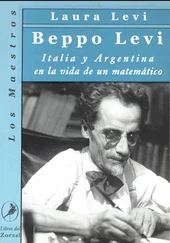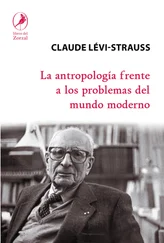Claude Levi-Strauss - Structural Anthropology Zero
Здесь есть возможность читать онлайн «Claude Levi-Strauss - Structural Anthropology Zero» — ознакомительный отрывок электронной книги совершенно бесплатно, а после прочтения отрывка купить полную версию. В некоторых случаях можно слушать аудио, скачать через торрент в формате fb2 и присутствует краткое содержание. Жанр: unrecognised, на английском языке. Описание произведения, (предисловие) а так же отзывы посетителей доступны на портале библиотеки ЛибКат.
- Название:Structural Anthropology Zero
- Автор:
- Жанр:
- Год:неизвестен
- ISBN:нет данных
- Рейтинг книги:3 / 5. Голосов: 1
-
Избранное:Добавить в избранное
- Отзывы:
-
Ваша оценка:
Structural Anthropology Zero: краткое содержание, описание и аннотация
Предлагаем к чтению аннотацию, описание, краткое содержание или предисловие (зависит от того, что написал сам автор книги «Structural Anthropology Zero»). Если вы не нашли необходимую информацию о книге — напишите в комментариях, мы постараемся отыскать её.
Like many European Jewish intellectuals, Lévi-Strauss had sought refuge in New York while the Nazis overran and occupied much of Europe. He had already been introduced to Jakobson and structural linguistics but he had not yet laid out an agenda for structuralism, which he would do in the 1950s and 60s. At the same time, these American years were the time when Lévi-Strauss would learn of some of the world's most devastating historical catastrophes – the genocide of the indigenous American peoples and of European Jews. From the beginning of the 1950s, Lévi-Strauss's anthropology tacitly bears the heavy weight of the memory and possibility of the Shoah. To speak of 'structural anthropology zero' is therefore to refer to the source of a way of thinking which turned our conception of the human on its head. But this prequel to
also underlines the sense of a tabula rasa which animated its author at the end of the war as well as the project – shared with others – of a civilizational rebirth on novel grounds.
Published here in English for the first time, this volume of Lévi-Strauss’s texts from the 1940s will be of great interest to students and scholars in anthropology, sociology and the social sciences generally.
